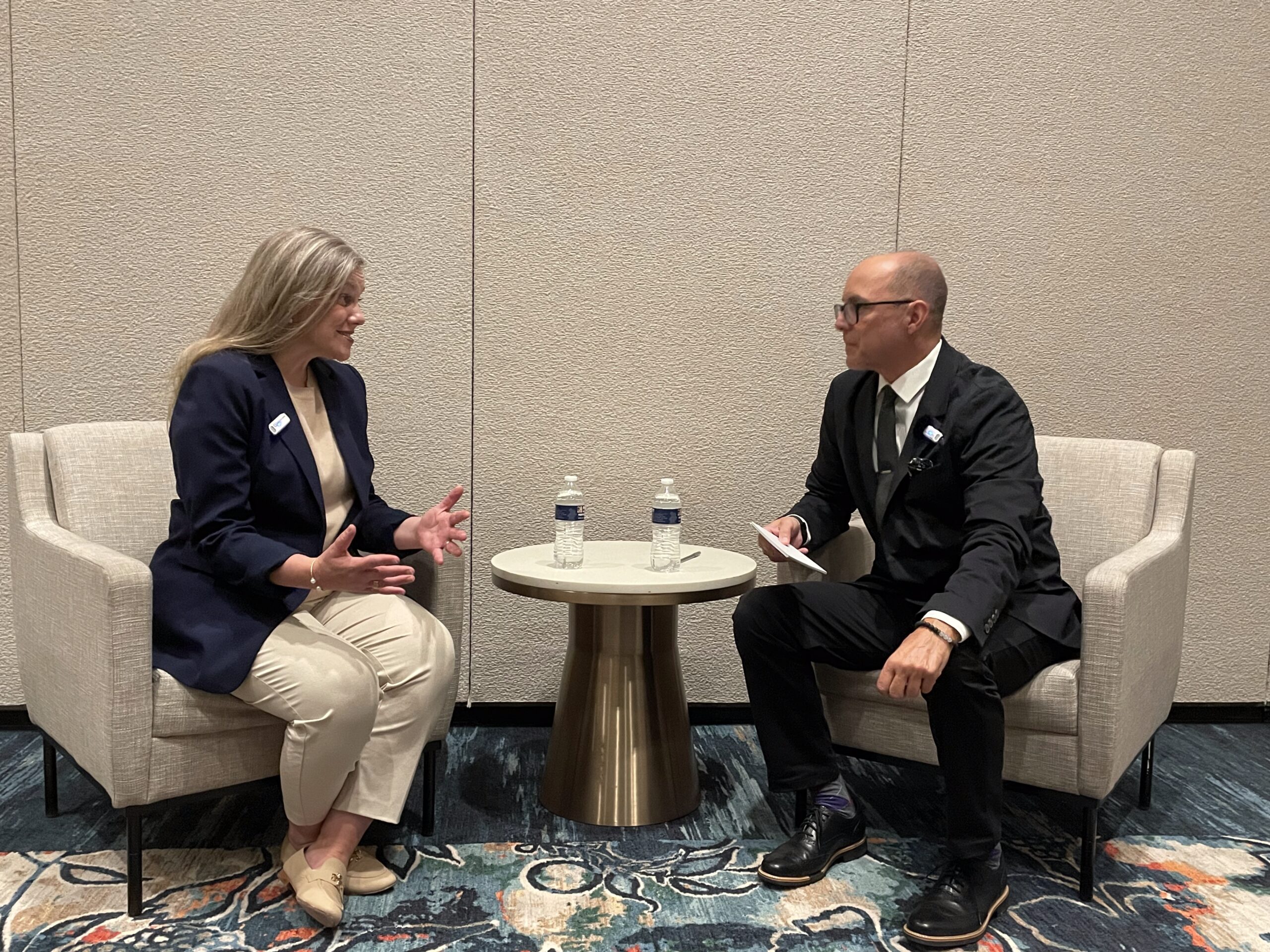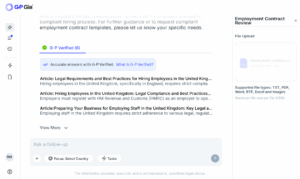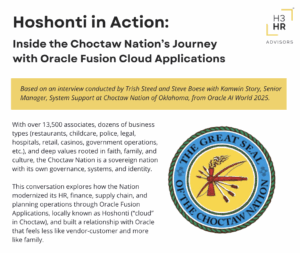Real Talk on AI in HR: Lessons from Nickle LaMoreaux’s HR Tech Keynote
September 29, 2025
At this year’s HR Technology Conference, IBM’s Senior Vice President and Chief Human Resources Officer, Nickle LaMoreaux, delivered an opening keynote that set the tone for the week: a candid, practical, and at times provocative exploration of what it really takes to implement AI at scale in HR.
Her message was clear: while AI is a powerful and transformative tool, it is not “magic.” To succeed, organizations must embrace not just new technology, but also cultural, behavioral, and leadership change. Her keynote balanced optimism with realism, grounded in IBM’s own multi-year journey deploying its agentic AI platform, AskHR, across 300,000 employees in 170 countries.
From Experimentation to Transformation
Nickle traced IBM’s path from the early days of Watson Assistant, when the company allowed “citizen developers” to create chatbots across HR. The result was chaos: more than 30 bots, inconsistent governance, and confused employees. The lesson, she emphasized, was the need for centralization and governance. That led to the launch of AskHR, a single point of entry for employees and managers.
But the technology alone wasn’t enough. “Just because you build it doesn’t mean they will come,” she said. To drive adoption, IBM shut off HR phone lines and email, along with HR Partner first line manager support for more than 20,000 managers globally, forcing employees and managers alike to use the system. The move tanked HR’s Net Promoter Score to –35, but IBM held firm. Over time, with better AI models, streamlined processes, and cultural adaptation, that score rebounded to +74, which was far higher than HR had ever achieved pre-AI.
Key Lessons for HR Leaders
Great keynotes are both inspirational and practical. Fittingly, Nickle distilled IBM’s journey into several actionable recommendations:
- Resist FOMO. There are no universal “best practices” for AI. What matters is alignment with your company’s business model, talent needs, values, and culture.
- Start small. Focus on high-volume transactions, “moments that matter” (like employment verification letters), or the most complained-about processes.
- Never automate a bad process. IBM learned to “eliminate, simplify, then automate,” ensuring only necessary and streamlined processes moved into AI.
- Be user-centric. Design through the eyes of employees and managers, not HR silos.
- Culture overrides everything. Technology is the easy part, but getting the culture to adapt is far harder, but essential.
Busting the Myths Holding AI Back
During her talk, Nickle also confronted the biggest myths that quietly stall AI adoption, even when leaders seem supportive on the surface. Left unaddressed, these fears can quietly derail transformation efforts.
Myth 1: AI makes domain expertise obsolete.
Many assume if AI can answer questions, deep expertise no longer matters. However, the opposite is true – it is becoming more essential. HR pros must be “one step smarter than the AI,” using judgement and context to decide when and how AI should be used.
Myth 2: AI eliminates the need for entry-level hires.
It’s tempting to think that entry-level roles can disappear when AI begins handling basic tasks. Nickle warned that this short-term thinking undermines the future talent pipeline. This is a time to reinvent roles to allow the ability for future growth.
Myth 3: AI can’t be trusted because it’s biased or hallucinates.
Bias and error are risks, but they are manageable ones. Nickle reframed this myth as a governance challenge. Leaders must track when AI produces inaccurate answers and update models quickly, using the guardrails that HR puts into place.
Myth 4: AI will inevitably cause massive job loss.
This is the fear that dominates headlines, but Nickle called it “a math problem that doesn’t compute” for any growing company. If the pie is expanding, AI frees employees from low-value tasks so they can focus further on higher-value, uniquely human work. The goal is job redesign, not job elimination.
By naming these myths directly, she summarized that culture and transparency are as critical to AI success as the technology itself.
Insights from the Q&A
In the Q&A portion, where attendees were encouraged to ask anything at all, and which I had the privilege of moderating, Nickle expanded on these ideas:
- On AI-centric skills, she highlighted three buckets: deep domain expertise, adaptability to technology, and collaboration/communication – what we often call “soft skills.”
- On executive support during IBM’s rocky early days, she noted the importance of transparency: using NPS feedback to build tactical roadmaps and show leaders how issues would be addressed.
- On ROI, beyond NPS, IBM tracks adoption, containment rate (problems solved without escalation), and minutes saved in transactions – tangible proof of productivity gains.
- On culture readiness, her advice was to pilot in small, low-risk areas or within HR itself before scaling, while finding champions who can advocate for the change.
A Call to HR Leaders
Nickle closed with a challenge: don’t just focus on AI within HR. HR must lead the entire organization through AI-driven job redesign, reskilling, and culture change. “It’s your time to be in the sun,” she said, urging HR professionals to step up as enterprise leaders in AI transformation.
Her keynote was a story of IBM’s progress as well as a roadmap for every HR leader wrestling with the same challenges. The message was both sobering and energizing: AI in HR is here, it’s real, and the path forward requires courage, persistence, and a willingness to rethink how work gets done.

Author
Categories
Tags
Share
How we can help
Led by Trish Steed and Steve Boese, H3 HR Advisors harnesses over 40 years of experience to delivery HCM insights and guidance to global organizations.
H3 HR Advisory services
By leveraging technology, analytics, and our deep industry knowledge we can help you to reposition your workforce and ensure that you have the right people with the right capabilities in the right roles to positively impact the growth of your business.
HR Happy Hour Podcast Network
Created in 2009, The HR Happy Hour Show is hosted by Steve Boese and Trish Steed and is the longest continuously running internet radio show and podcast on Human Resources, HR Technology, Talent Practices, Workplace and Leadership topics.
H3 HR Speaking Services
We work closely with every client to customize your content - keynotes, webinars, research, infographics, and buyer’s guides - to inspire, educate and inform the audience enabling you to reset and realign your organization for a talent-led breakthrough.
Get in touch
Talk to us today and find out how we can help you and your organization leverage HCM technology to attract, onboard, retain and manage top talent.



